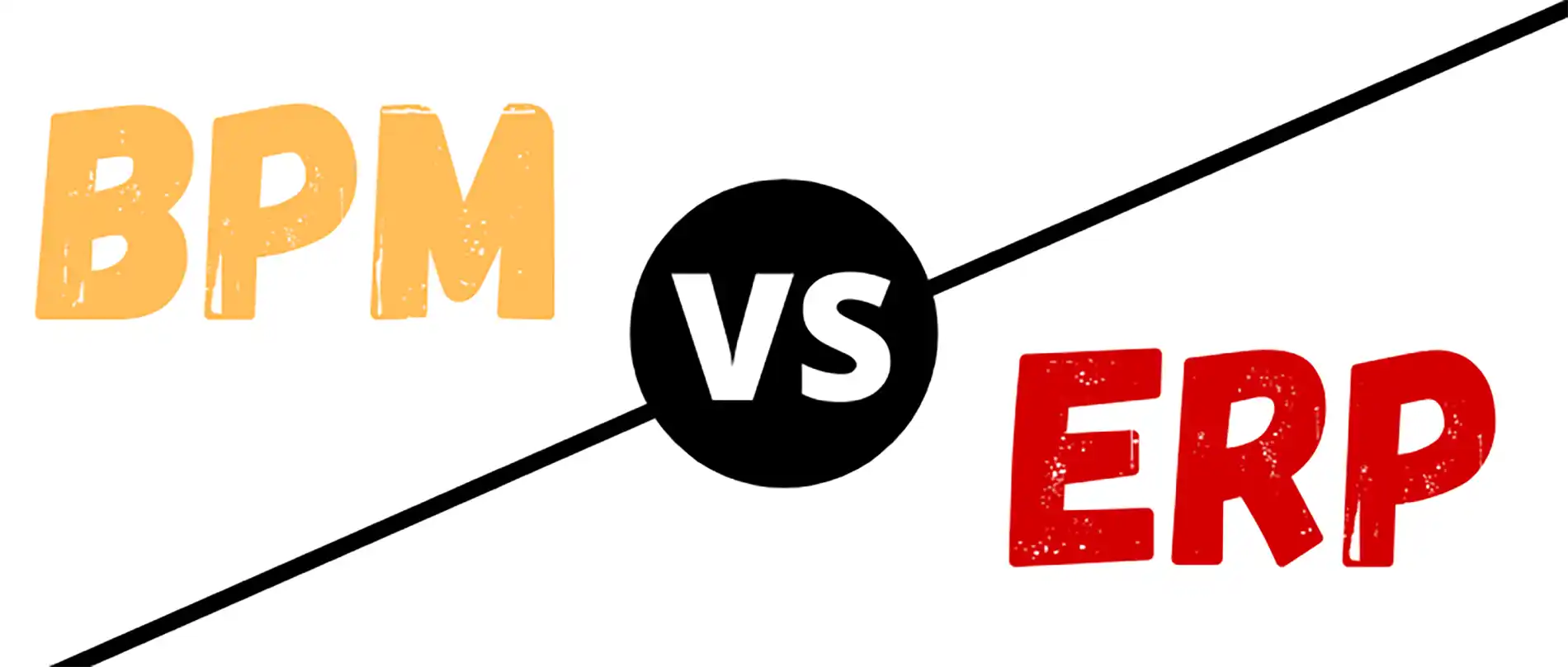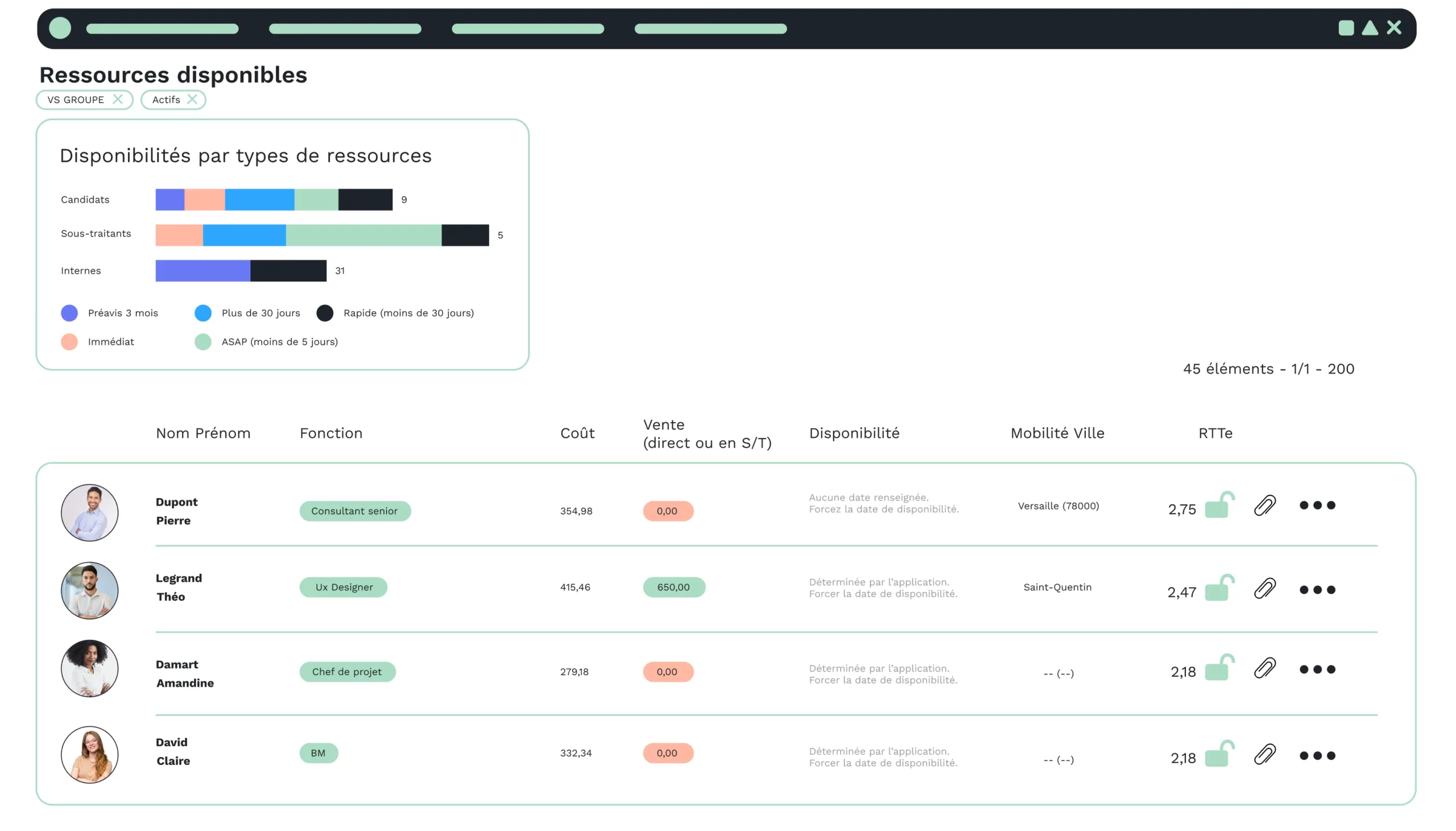What’s the difference between Business Process Management and Enterprise Resource Planning software?
As companies continue to integrate IT solutions to meet their digital transformation needs, the choice between two solutions can be complex, especially if they seem to address the same issue: business productivity.
This is particularly the case with BPM and ERP, two solutions designed to increase business productivity through process management. However, they do not act on the same scale.
We’ll explain!
What is a BPM?
The acronym BPM stands for “Business Process Management”.
It’s an IT solution that conceptualizes a company’s business processes in order to analyze, measure and optimize each flow.
The aim is to improve the company’s productivity by coordinating human flows, machines, systems and robots.
But what does it actually mean?
When the BPM software solution models business processes, it analyzes every exchange, task, execution time and validation.
To map the flow of trade, we rely on what’s happening in the field. In this way, it helps to pinpoint malfunctions and improve processes.
This can be done by automating repetitive tasks, for example.
Business Process Management has many benefits for the company
A business process management software solution will enable :
- Improve communication within the various processes.
- Reduce human error, such as forgetting to execute a task.
- Implement solutions to automate repetitive tasks, enabling employees to perform higher value-added tasks. This could be by automating customer relationship management.
- Speed up task execution.
- Improve process compliance, in particular to maintain or obtain certification.
How? Through a clear, precise view of the progress of tasks or projects, the monitoring of key indicators specific to each of the company’s businesses, and alerts in the event of anomalies.
What is ERP?
Enterprise Resource Planning (ERP) is a software solution designed to improve business productivity.
It’s a management software package that combines several interconnected functional building blocks: CRM (Customer Relationship Management), HRIS (Human Resources Information System), billing management, time and activity management and expense management, to name but a few.
An ERP is a business management solution that gives you a global view of your company’s activities, standardizes processes and centralizes company data.
What does this mean in concrete terms?
When an ERP system is implemented, the company will have a single database accessible to all business functions (depending on the rights and settings implemented in the ERP solution).
- This eliminates the need for multiple re-entries, since data entered once is automatically reused or copied to the appropriate places in the software.
- The data is more reliable.
- Time-consuming tasks are reduced.
- Processes are unified through configurable workflows.
- Reporting (crosstabs and graphs) is available to provide an overview of key indicators.
What are the differences between BPM and ERP?
Although both solutions have the same purpose, they differ in many respects.
The information system
ERP will centralize the company’s data to form a single database for all its business activities. In this way, data is more easily accessible and updated, increasing its reliability.
The BPM solution, on the other hand, focuses on the information flows specific to each business. In reality, the role of the solution is not to unify data from all the company’s business lines, but to facilitate the transmission of information within a business line. Consequently, if the company has several information systems dedicated to each business line, the solution will handle them separately.
The scale of influence
ERP addresses all the company’s business processes, and aims to unify them to improve productivity. In other words, the IT application will integrate relevant data in the various places where it is needed, so that every department that needs it has access to it.
For example, when billing a customer :
The sales representative will create the deal, then the consultant assigned to the job will fill in an activity report, and all this data will be taken into account when invoicing. The business linked to the customer, the time spent on the project, the billing method, etc.
ERP will ensure cohesion between departments.
BPM, on the other hand, focuses on business processes and the cohesion between people and tools. More specifically, how the process unfolds step by step. It won’t link the company’s business lines.
If we take the previous example, the business process management solution will focus, on the one hand, on the business creation process by the salesperson, independently of the time declaration process by the consultant, which will also be independent of the invoicing process.
The BPM software solution will ensure cohesion within the same team.
Features
What’s more, the functionalities offered by the two solutions are not the same.
ERP is management software that supports a company’s business functions in their day-to-day tasks. BPM, on the other hand, is a solution that coordinates business processes by automating repetitive tasks through well-crafted workflows, thereby simplifying processes.
Can a BPM solution replace an ERP system?
The answer is no: a BPM solution cannot replace an ERP system. For all the reasons mentioned above.
Even if the aim is the same, the two solutions do not act at the same process level. While one acts within the processes of a single team, the other will act within the process of the whole company.
BPM and ERP: a complementary couple?
Yes, the two solutions can be complementary. They enable efficient processes to be set up at different scales and also :
- Easily track ongoing projects, indicators, etc.
- Validate each step of a process and make corrections where necessary.
- Reduce repetitive tasks through automation.
To conclude on the difference between BPM and ERP
As part of their digital transformation strategy, companies often have many questions about the right tools to implement.
Business Process Management and Enterprise Resource Planning are two similar solutions, both of which influence company processes and aim to improve them to boost productivity.
However, they do not intervene at the same level, making them two different solutions. One acts at the level of one business line independently of the others, while the other acts across all the company’s business lines.
Note that the two solutions can complement each other perfectly to optimize your company’s profitability.
Read also







